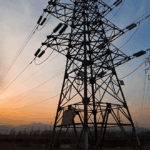
The Institute of Climate and Environmental Governance (ICEG) has raised concerns over what it describes as “shortfalls” in the energy sector proposals outlined in Ghana’s 2026 Budget Statement and Economic Policy.
While acknowledging the government’s commitment to energy security, ICEG says some of the measures risk being temporary fixes rather than addressing structural challenges.
Kwesi Yamoah Abaidoo, Policy Lead for Climate Finance and Energy Transition at ICEG, noted, “Although these actions keep the lights on, they don’t fix the underlying technical issues, which include weak grid infrastructure, inefficient plants, high system losses, and outdated metering.”
In its assessment, ICEG highlighted several areas of concern. It argued that short-term financial measures, such as paying arrears, restoring letters of credit, and settling outstanding invoices, may stabilise cash flow temporarily but fail to address Ghana’s persistent technical and operational inefficiencies.
The institute also questioned the need for a 1,200 MW state-owned thermal plant under the GPP-2 project, warning that Ghana’s installed capacity already exceeds demand growth and that long-term foreign exchange risks and stranded assets could result from committing to long-lived thermal infrastructure.
ICEG further challenged claims in the budget that switching to domestic gas would reduce generation costs by 75 per cent, noting that inefficiencies in thermal plants, processing fees, transportation costs, and dollar-denominated contracts make this projection overly optimistic.
The institute also flagged limitations in the Cash Waterfall Mechanism (CWM), stating that while the budget projects increased revenue declarations from GH¢950 million to GH¢1.7 billion, the mechanism only redistributes revenue without improving operational efficiency or ensuring debt recovery from independent power producers (IPPs).
The assessment also raised concerns over the Private Sector Participation (PSP) process for the Electricity Company of Ghana (ECG), cautioning that it may have a limited impact without clear technical and commercial performance indicators, including feeder reliability, loss reduction, and collection efficiency.
ICEG additionally observed that the budget prioritises thermal assets while underinvesting in renewable energy and smart infrastructure, which are essential to diversifying Ghana’s energy mix.
To address these gaps, ICEG recommended reforms including a performance-based CWM, a foreign exchange hedging policy for gas contracts and IPP payments, and a structured PSP framework with measurable KPIs.
“ICEG believes that incorporating these recommendations into the implementation scheme will enhance efficiency and ensure value-for-money in these initiatives earmarked for 2026,” Abaidoo added.
The 2026 Budget, presented by Finance Minister Dr Cassiel Ato Forson, outlines government plans to stabilise Ghana’s energy sector amid ongoing challenges with generation, distribution, and IPP contracts.


